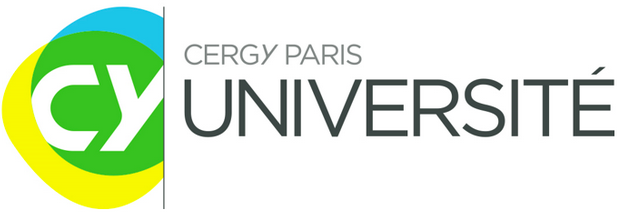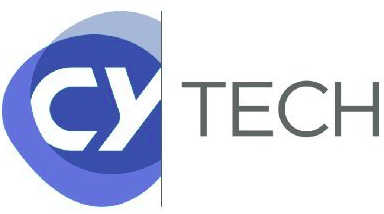Vous êtes ici :
International Bachelor Ygrec Data Science by Design - Data Science for a better world
Syllabus of "International BaSyllabus of "International Bachelor Ygrec - Data Science by Design" of CY Cergy Paris Université Operate by CY Tech, member of CY Cergy Paris Universitéchelor Ygrec - Data Science by Design" of CY Cergy Paris Université
Operate by CY Tech, member of CY Cergy Paris Université
A high-level challenge-based program with campuses in Europe and Asia
“There is no more important mission for universities than to expose students to the world and to its complexity” by Andrew Hamilton (NYU):
LEARN / IMAGINE / CREATE / COOPERATE to address contemporary issues and have an impact on tomorrow’s world


To begin
Background
The bachelor programme is one of the projects developed through the Paris Seine Initiative.
Paris Seine initiative, a label of academic excellence for French world leading universities supported by the government, bringing together the top institutions: University of Cergy-Pontoise (UCP), ESSEC, and EISTI on academic project and development.
Rankings
- EISTI France ranked as #2 for its Engineering diploma in computer and mathematics engineering (by ‘Meilleurs Grandes Ecoles’),
- UCP France #1 for its Master in Economics,
- UCP France #4 for salaries of graduates (by ‘Le Monde’ newspaper),
- ESSEC World #3 for its Master in Management (by London Financial Times), 20 chairs of excellence with world leading companies.
Research reputation:
- Shanghai Ranking places UCP as one of the best Mathematics Institutions among the world top 200 schools and puts ESSEC among the 200 schools in Finance discipline.
- joint research labs with CNRS, France leading Research Center, with over 600 distinguished researchers.
Experience and Innovation: French « classes préparatoires / Preparatory Class, » internship and apprenticeship-based training, project-based and problem-based pedagogy, open access to fab labs, creative platforms and open access to research labs.
From January 1st 2020
EISTI is developing and transforming, becoming, from the 1st of January 2020, the global school in Sciences, Engineering, Economics and Management of CY Cergy Paris Université.
CY Cergy Paris Université
From the 1st of January 2020, Cergy-Pontoise Université and EISTI become CY Cergy Paris Université. It represents 24,000 students. ESSEC is associated to the university and takes part in its governance.
The academic offer is simply structured as an undergraduate university called CY SUP and 5 undergraduate schools: 4 within the university, the 5th being ESSEC.
CY SUP coordinates between high schools while giving to students fulfilling studies and a great life experience.
With ESSEC, the others graduate schools led by the university are:
- CY Tech, school in Sciences, Engineering, Economics and Management with the EISTI input in Engineering
- CY Arts and Humanities, in association with ENSAPC, ENSAV, ENSP and INP
- CY Education, with INSPE, EPSS and ILEPS
- CY Law and Political Sciences
CY Tech, a brand-new Sciences, Engineering, Economics and Management school.
From September 2020, new curriculums will be launched, including Engineering as well as news subjects and diplomas.With Mathematics and Computer Sciences, CY Tech will open new training in Civil Engineering, Biotechnology and Chemistry as well as in Economics and Management.
CY Tech training offer is organized in:
- Engineering
- Masters, DU
- Continuous training with specialized masters
- International masters with abroad campus and new training (Bachelor Y)
- PHDs
CY Tech is located in France both in Cergy (95 - Val-d'Oise) and Pau (64 - Pyrénées-Atlantiques).
CY Tech has the ambitious aim to become one of the best French Engineering schools with a thousand graduates a year.
The Programme
THE PROGRAMME PHILOSOPHY
Aims
- A 4-year challenge-based programme for excellent, and curious students, with a curriculum designed to have an impact on the world of tomorrow.
- This Bachelor trains future international leaders in Data Sciences, Cybersecurity, Artificial Intelligence.
- For future top scientists, engineers and managers, both French and English speaking, open to the global complexity of the world.
Means, our International campuses
- A combination of French high standard scientific training (« classes préparatoires »), the ability to learn through innovative pedagogy and openness to research and challenges of the 21st century.
- With double locations in Europe and Asia-Pacific the “Bachelor Ygrec – Data Science by design” offers international mobility for the students joining the program.
- The Bachelor welcomed its 1st intake in September 2018. The international mobility is an essential part of the programme design: our bachelor students will have to study in another campus during their studies. Our bachelor programme offers a backbone in Mathematics, and applications to Mathematical modeling, Data Analysis, Artificial Intelligence, Cybersecurity, Cryptology, Economy and Statistics.
THE CURRICULUM
The “Bachelor Ygrec - Data Science by design” combines high demanding academic pedagogy like in « classes préparatoires » (50%) with alternative pedagogy addressing challenges through problem solving and project driving (35%) as well as time for discovering and sharing (15%).
The Bachelor also enables the students to design their curriculum progressively: during the 1st and 2nd years, priority is given to learning the basics and building scientific foundations together with a choice of deeper modules. During the 3rd and 4th years, basic courses will have a less critical part, and students will strengthen their area of expertise with emphasis given to deeper modules.
Throughout the 4 years of the Bachelor, students will experience learning, creating and giving, designing year after year the challenges they would like to tackle during their future professional and personal life, according to three main categories:
- Humanity and technology (living among data, robotics, quantum computing, cryptology)
- Humanity and the planet (forecasting climate challenges, modelling condensed matter behavior)
- Humanity and society (modeling sociological phenomenon, developing economics model for education or resources exchanges)
THE PEDAGOGY
The programme pedagogy follows a new approach in which students are actors in their own learning process, with three main behaviours:
- Learning for doing
- Doing to learn
- Learn from doing
BROADEN STUDENTS’ SKILLS
Contemporary Issues modules (DCIM): 2 weeks per year (15h each week)
Each year 2 weeks are dedicated to Design Contemporary Issues Modules (one week in each semester). These sessions aim to develop students’ soft skills through challenges related to the 21st century issues such as climate changes, agro ecology, life organization with new technological means for example. Those sessions will also provide the opportunity for students to understand how to use the course material in different contexts or to tackle new notions using tutorials. In particular, DCIMs are managed using the “Thinking Design” method in collaboration with the CY Design School. All sessions are directed by a teacher from CY Design School, helping students with the design method, while a second teacher is in charge of scientific aspects (informatics, physics, mathematics, economy).
The first DCIM of years 1, 2 and 3 are dedicated to introduce new concepts to the students.
-
DCIM 1, year 1: Introduction to the Thinking Design Method
-
DCIM 1, year 2: UX/UI
- DCIM 1, year 3: graphic facilitation
On Cergy campus, a DCIM is organized at CY Design School so that Bachelor students can take advantage of the infrastructures and feel the state of mind of the Thinking Design method.
Design is not what you think it is …
Furniture, accessories, cars, style, graphic design: here is what we think about when we talk about ‘Design’.
Artists, authors, divas, stars, Starck: here is the image of designers we have in mind.
However, it has nothing in common with what most designers do today, nor with what we teach them.
Along the line of engineers or managers, today’s designer takes part into the conception of strategies, organizations, systems, services, experiences, interfaces and objects, which enable and are in everyone daily lives. Human centered, a designer contributes, from his culture, his knowledge and his practices to create successful life experiences.
For designer, drawing - and more generally the ability to represent- but also a wild knowledge in humanities and marketing are placed at the service of an interactive and collaborative method to solve problem, analyze, create, materialized answers. The designer is always a member of an interdisciplinary team, where all expertises are crossed and contribute to a project always centered on the user and all other partners’ interest. The designer works in a systemic approach.
The ‘Design Thinking’ approach, is at the heart of the designer expertise, and is spread in banks, insurance companies, consulting firms and public services showing the Design rise as a thinking and solving method, far from prejudices and previous habits.
NICT were, are and will be boosters as design beneficiary. Without Design and Designers, no computer mouse, no Mac, no WYSIWIG, no internet, no mobile phones, no App and AppStores, no UBER, no AIRBnB. It is therefore a fact that Data Scientists, with the huge input they have and will have on people, companies and governments will have to integrate their design knowledge, methods and practices in order to invent and pre-empt needs as well as serve at their best.
The word ‘Design’ comes from the Italian word ‘Disegno’ which literally means ‘Drawing’ and ‘Purpose’, ‘Representation’ and ‘Project’. Drawing as a purpose, gives a meaning to a project while always keeping in mind its use and usefulness, here is the Design virtue of the 21st century, an approach that brings people together, a shared method, which put the ‘How’ and the ‘How many’ at the use of the ‘Why’.
Absolutely everything show that it is the moment.
The Design moment.
Individual and Collective Practices (ICP)
These afternoon session (22.5h per semester) will take the form of return on experience, by systematically asking questions such as: What did I learn today? Why is it important? What did I lean on myself? Could I have acted differently?
Humanities and social sciences
90h of courses are devoted to the humanities and social sciences (3h/session) as follows:
- Sociology of users (15h) – Year 1, Semester 1
- Ethnography/ethnology (15h) – Year 1, Semester 2
- Anthropology (15h) – Year 2, Semester 1
- Semiology (15h) –Year 2, Semester 2
- Digital Sociology (15h) – Year 3, Semester 1
- Ecology (15h) – Year 3, Semester 2
Validation is done by presence. Students will have to use what they have learned in other training modules.
Enlightenment sessions (20h per semester):
Once a week, students attend a conference which may lead to a debate. The objective is obviously to open their minds to important subjects which are not necessarily directly related to Data Science (but which are indirectly related, such as law, for example). Validation is done by presence. Students will have to use what they have learned in other training modules.
Throughout the year (number of hours changes according to the year of enrollment):
- Conduct a project, either with a team or with a personal challenge. For the 3rd and 4th year, project will be related to companies or research laboratories issues
- Internships in companies or research laboratories
- Explore French / English language and culture
- Follow the conferences cycle of the Institute of Advanced Studies on global issues of the 21st century (technology, planet, society)
- Attend conferences given by professionals
- Give some of your time to share science or your passion with kids, younger students and members of the public
- Self-development through sport, art, culture, ideas, or by leading an association
Design Thinking Method
The cooperation between CY Cergy Paris Université and Strate School of Design will allow students to benefit from the Design Thinking Method.
During their projects, students will be trained with this method. Design Thinking is a human-centered approach that brings key to problem solving. The focus is on users. Products and services are co-designed based on their needs and iteratively. There are 5 stages: immersion, problem definition, ideation, prototyping and tests. Design Thinking changes the way to consider problems, teams and clients as well as the process of project development.
Please find in the following the Table of learning Modules and working hours



